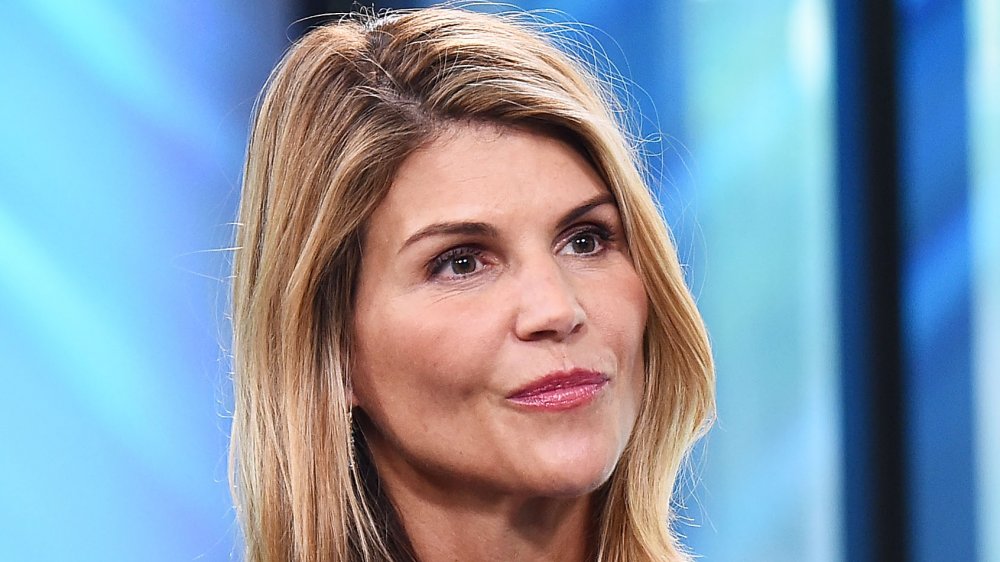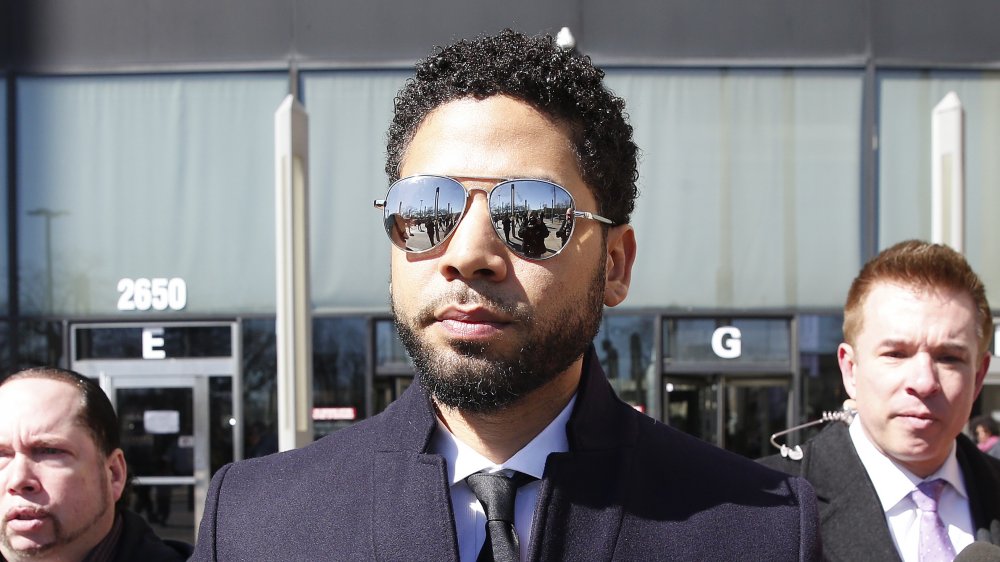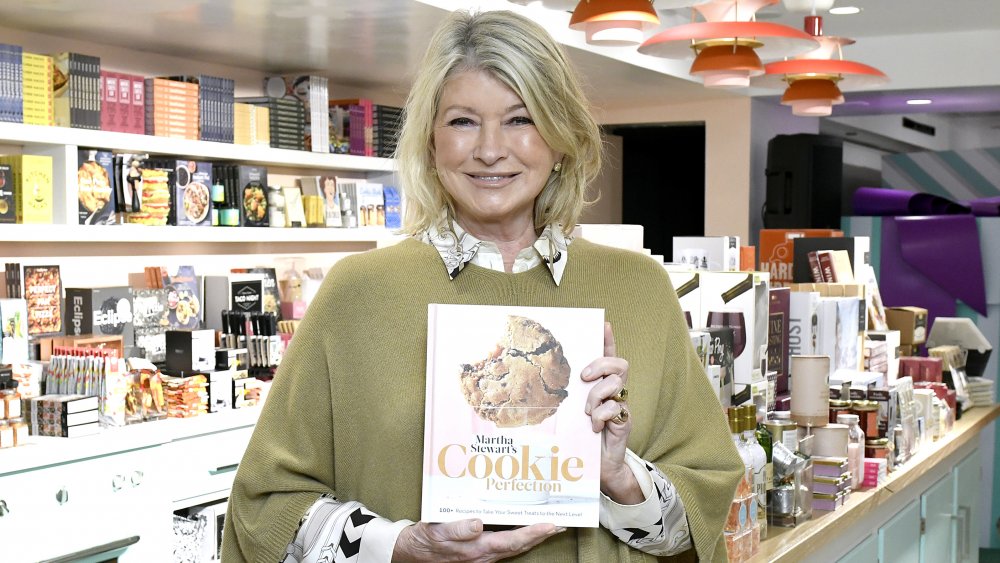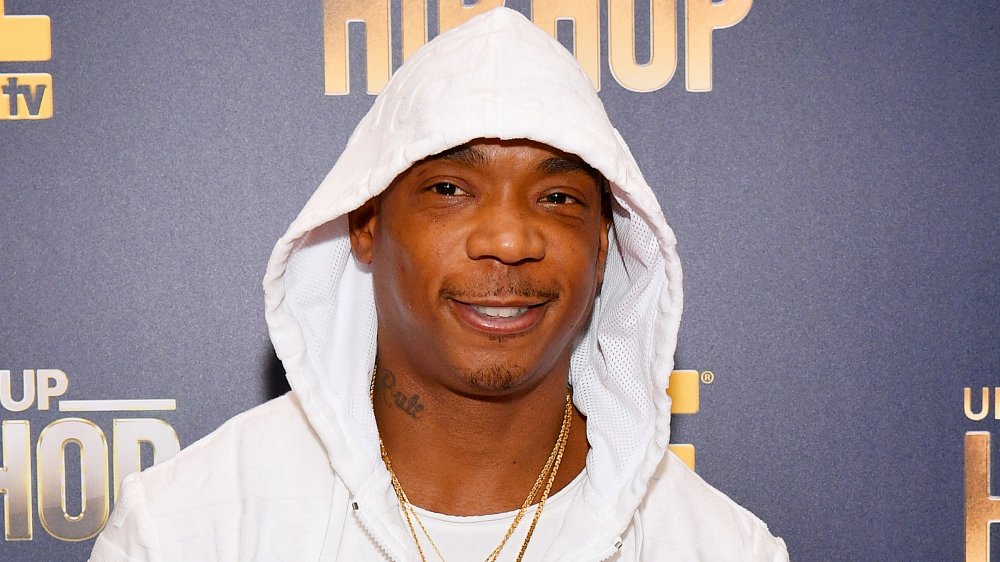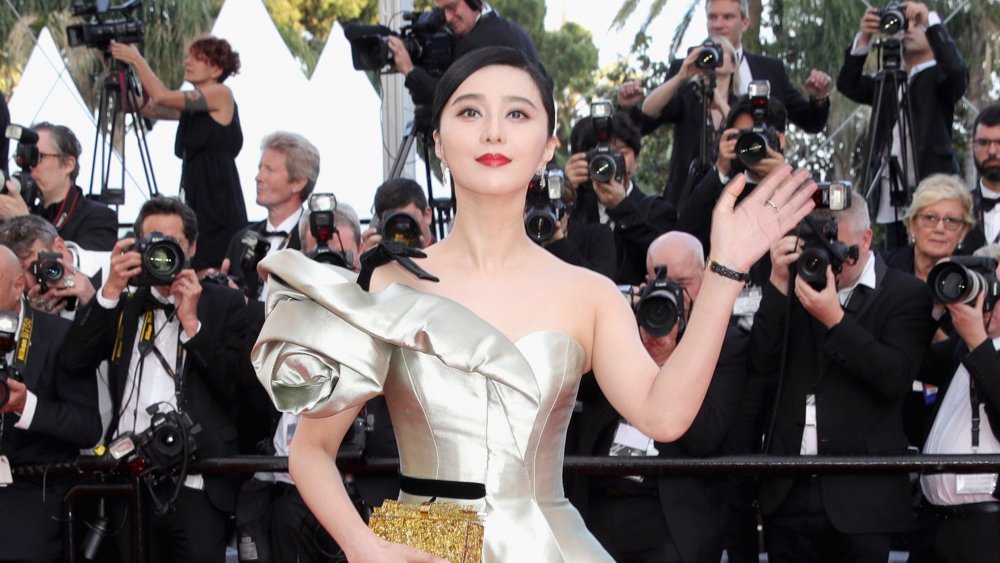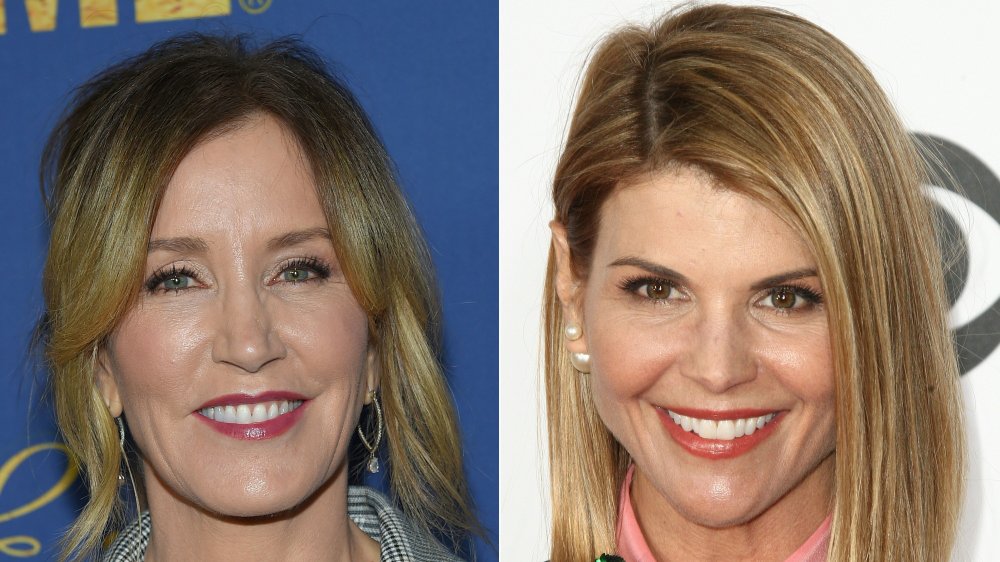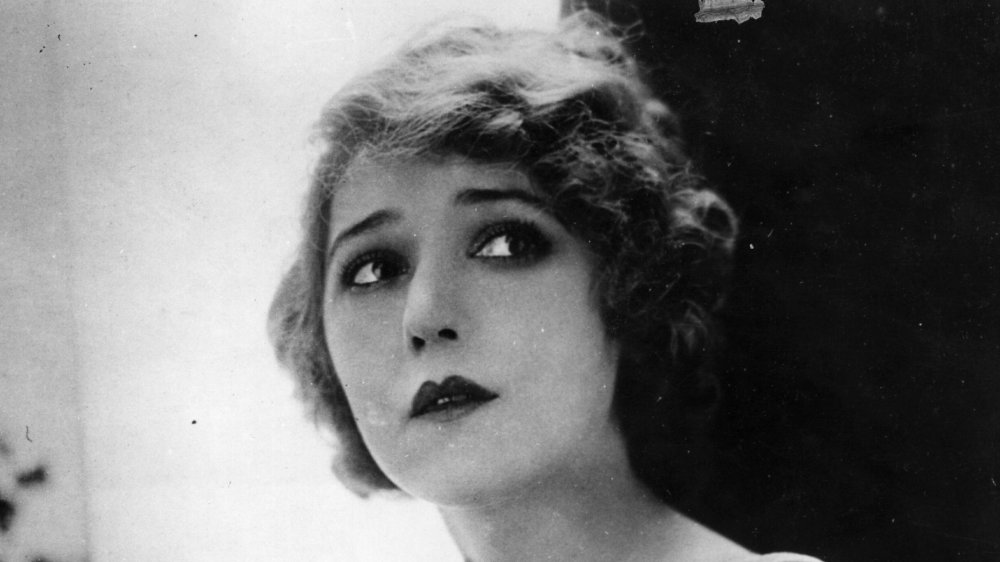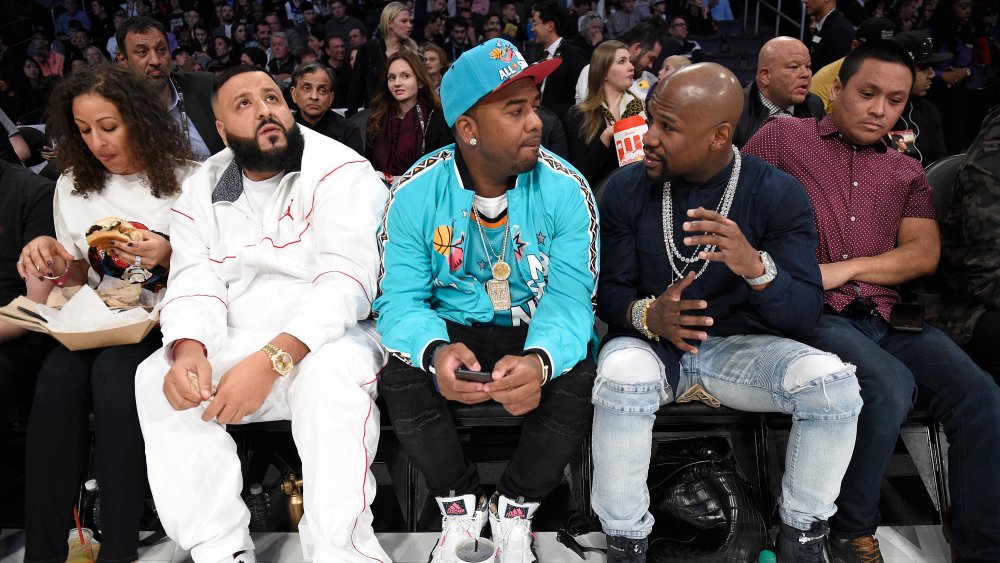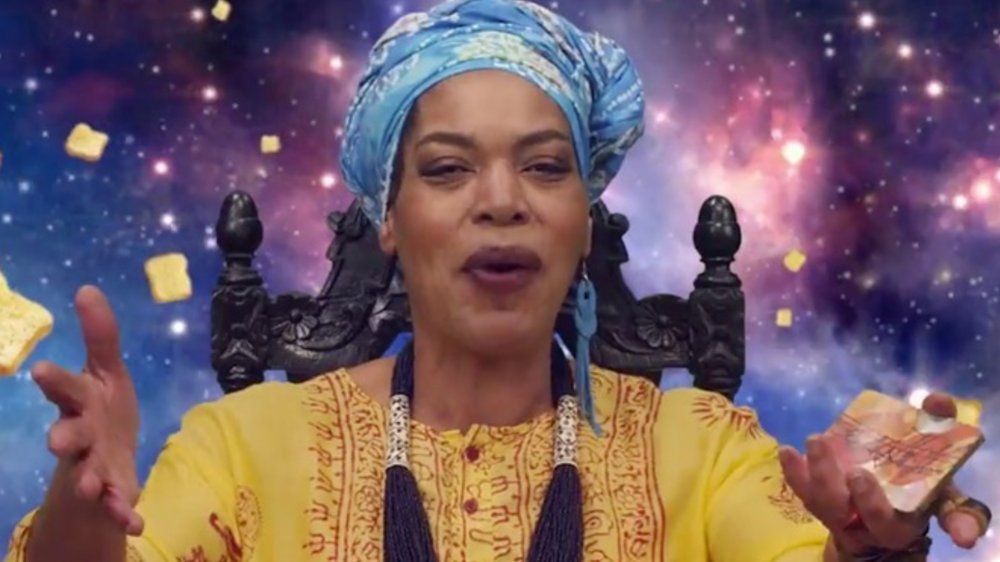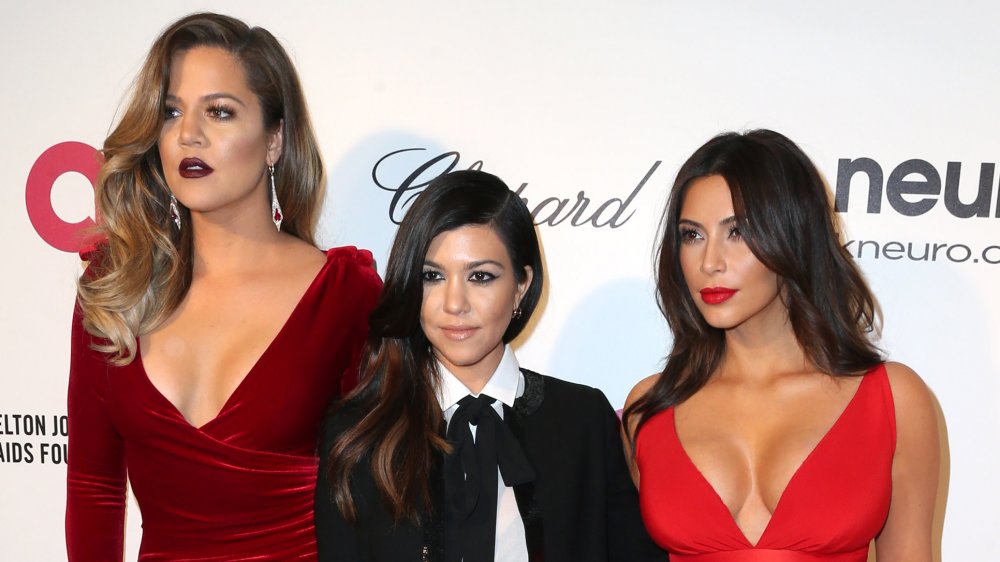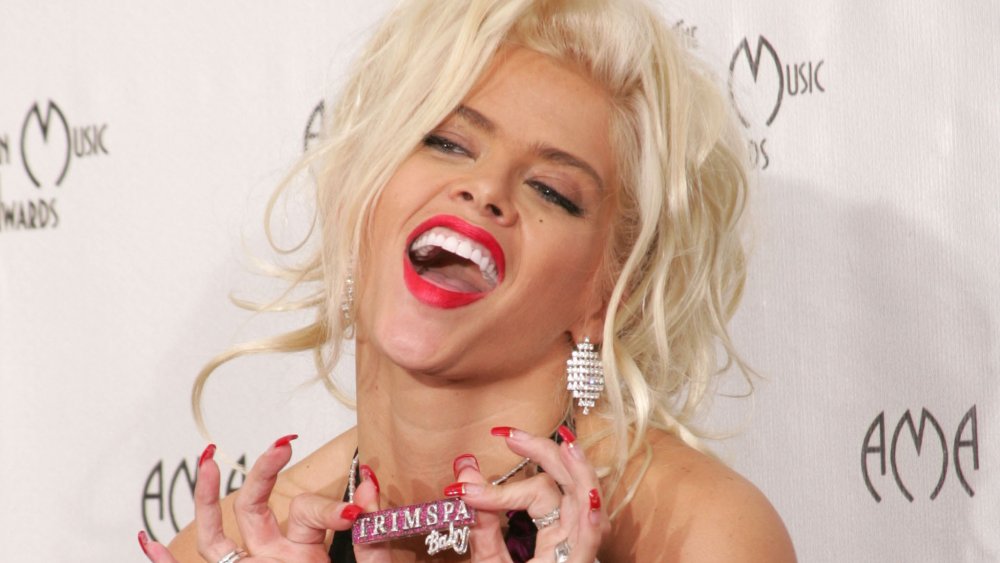Celebs Who Got Caught Behind Epic Scams
Celebrity scams are everywhere — in fact, many of them might have even come for you. Yet, the vast majority of celeb scams involve someone impersonating a star or using a celebrity's name unlawfully. A 2018 piece by The New York Times looked at just how plentiful these occurrences have been, and just how easy it is for people to do this in the age of social media.
But not all of these celebrities are totally innocent. While scamming the public may not have been their full intention from the start, there have been quite a few celeb-backed endeavors that turned out to be deceitful and dishonest. Whether it was endorsing questionable products, creating alleged elaborate hoaxes, or committing full-blown crimes, a number of famous faces have found themselves involved with some of the biggest celeb scandals in recent memory.
To understand these better, we decided to take a look at the worst. Here are the celebs who got caught behind epic scams.
Hate crime or fake crime?
In January 2019, Empire star Jussie Smollett reported that he was the victim of a shocking crime. According to The New York Times, the actor claimed he was attacked in downtown Chicago by two unknown assailants, who reportedly hit him in the face, yelled racial and homophobic slurs, poured an "unknown chemical substance" on him, and wrapped a rope around his neck.
While police investigated the case as a possible hate crime, suspicions were soon raised over Smollett's attack, suggesting the actor allegedly orchestrated the incident with his attackers. By late February 2019, Smollett was arrested on felony charges of disorderly conduct and filing a false police report. Things took another surprising turn when prosecutors dropped the charges against him in late March, according to BBC News. At the time, prosecutor Kimberly Foxx stated that they were satisfied with the resolution of the case, noting Smollett's completed "volunteer service in the community and agreement to forfeit his bond to the City of Chicago."
However, city officials later filed a lawsuit against Smollett, arguing that he should pay the city back for the cost of the investigation: about $130,000. At the time of this writing, the case remains ongoing, with Smollett filing a countersuit in November 2019. According to the Chicago-Sun Times, the malicious prosecution counterclaim emphasized Smollett's claim of innocence, alleging how the original indictment against him had caused him "humiliation, mental anguish and extreme emotional distress."
Martha Stewart lying
Back in 2004, famed style-setter Martha Stewart seemed to grow her celebrity status overnight when she was nabbed for alleged insider trading. According to The Guardian, she would spend five months in a women's jail in West Virginia and another five months under house arrest. But insider trading wasn't entirely why Stewart went to jail.
CNN Business reports that Stewart sold nearly 4,000 shares of ImClone Systems the day before the company announced an FDA ruling that crushed the price of its stocks. According to The Globe and Mail, she had been given inside information about the company and then reportedly lied during the resulting investigation. When prosecutors filed the charges, Stewart's lawyers questioned their intent: "Is it for publicity purposes because Martha Stewart is a celebrity?" In response, U.S. Attorney James Comey stated, "This criminal case is about lying, lying to the FBI, lying to the SEC and lying to investors. That is conduct that will not be tolerated by anyone," He added, "Martha Stewart is being prosecuted not because of who she is, but what she did."
Opening up about her time behind bars in 2013, Stewart told Today, "It's hard to say, 'Good comes out of a bad time.' And that saying that, 'It only makes you better'? Oh my gosh. Bull. It's terrible. I lost a fortune."
Were Ja Rule's pants on Fyre?
In early 2017, a promotional video for the now-infamous Fyre Festival made its rounds on social media. It featured celebrities, like Bella Hadid and Kendall Jenner, and promised "an immersive music festival" in the Bahamas that April. According to CNBC, Fyre Media (co-founded by rapper Ja Rule) sold tickets that were priced as high as $49,000 for the event ... but then delivered something that fell way short of expectations.
Instead of the luxury accommodations, food, and entertainment that guests were promised, they were provided pop-up tents, makeshift meals in Styrofoam containers, and no-show bands (via CNBC). After news of the disastrous event spread like wild, well, Fyre, Ja Rule spoke out in a statement on Twitter: Noting that he was "heartbroken" over the ordeal, he claimed that the event was "not a scam" and that he was not to blame. However, that didn't save the rapper from being named in a $100 million class-action lawsuit the following month.
According to CNBC, the lawsuit alleged that promoters and organizers knew that the festival was "dangerously under-equipped and posed a serious danger to anyone in attendance" and reportedly did nothing to stop it. While the lawsuit was later dismissed and Ja Rule was cleared of any wrongdoing, as per CNET, the promoter of the festival, Billy McFarland, was sentenced to six years in prison for multiple fraud charges.
Where in the world was Fan Bingbing?
How does one of the world's most famous actresses go missing without a trace? It seems almost impossible in this age, but that's what happened in 2018 when Fan Bingbing, China's darling, left the grid entirely. For approximately three months, she wasn't seen on social media or in public.
According to Vanity Fair, the reasons behind this celeb's mysterious disappearance began in late May 2018, when TV host Cui Yongyuan posted two different versions of Bingbing's contract for Cell Phone 2 on social media: One showed the actress making $7.8 million, whereas the other listed a $1.5 million earning. It launched a scandal, which had tax authorities investigating just a week later. Next came a government initiative that capped all film stars' earnings to less than 70% of a production's total acting budget. By July, Bingbing went completely silent. When she finally returned that October, the South China Morning Post (via Vanity Fair) revealed that she had been held under "residential surveillance."
Vanity Fair reports that it's apparently "legal for the Chinese secret police to detain anyone charged with endangering state security or committing corruption and hold them at an undisclosed location for up to six months without access to lawyers or family members." While the actress was lucky in some ways — her tax evasion crimes were punishable by death up until 2011 — she was still "ordered to pay $131 million in back taxes and penalties," and apologized on social media.
These actresses became the faces of the college admissions scam
In the spring of 2019, a major scandal dominated the airwaves. In what The Globe and Mail described as "the most sweeping college admissions scheme ever unearthed in the United States," dozens of rich American parents were arrested on conspiracy and fraud charges. According to the prosecutors, a college-preparation company in Newport Beach, Calif. was determined to be taking bribes and falsifying applications to improve its applicants' chances of being accepted at some of the nation's most prestigious schools.
Perhaps the most interesting aspect of the case, however, was the high-profile names of some of the accused: Actresses Lori Loughlin and Felicity Huffman were two of the most famous people caught up in the college admissions scandal. Huffman, who pleaded guilty to her charges that April, was later sentenced to 14 days in prison for paying $15,000 to have her daughter's SAT scores altered.
Meanwhile, Loughlin rejected her plea deal and has consistently pleaded not guilty alongside her husband, Mossimo Giannulli, after being accused of paying $500,000 to get their daughters into the University of Southern California and falsely positioning them as crew recruits. As of this writing, Loughlin's case is unresolved.
And the award goes to...
There have been plenty of issues at the Academy Awards over the years, but few ever reached the level of the Mary Pickford scandal. It was only the second year of the Oscars, back when the results were decided by a five-man board. According to The New York Times, Pickford had just transitioned to the world of "talkies" and wanted to take home the best actress award — but her performance in the controversial film in question, Coquette, received poor reviews.
Apparently undeterred, the young actress wasn't about to let just her acting do the talking. To improve her chances, Pickford reportedly invited the board members over to her house, which she shared with her then-husband and then-president of the Academy of Motion Picture Arts and Sciences, Douglas Fairbanks, for tea. It's unclear what was said during this visit, but it wasn't long after her tea party that she was named best actress — and subsequently accused of bribery. The New York Times reports that it was because this that award show's voting was extended to all members of the Academy.
These celebs paid the price for a cryptocurrency scam
For many, cryptocurrency might as well be called cryptic-currency. Even the basics of virtual currency can be complex, which can make it a risky venture for the uninformed. That's partially why rapper-producer DJ Khaled and boxer Floyd Mayweather were fined by the Securities and Exchange Commission (SEC) in 2018 for promoting a bad investment on social media.
After the start-up Centra Tech was deemed fraudulent, The New York Times reports that its celeb promoters, DJ Khaled and Mayweather, were forced to pay fines as well as pay back their earnings, and were respectively banned from promoting other investments for two and three years. "Both men agreed to settle the charges against them," the media outlet wrote, "without admitting wrongdoing."
However, they weren't the only celebs to get involved with cryptocurrency. Before them, Paris Hilton promoted Lydian, a company which was later discovered to be founded by man convicted of domestic abuse and subsequently lost nearly all of its value. According to The Verge, the trend of celebrity support for cryptocurrency got so bad that the SEC developed its own fake virtual currency, Howey Coins, to warn potential investors against bad investments and celebrity endorsements. When would-be buyers committed to buying the coins, they received a warning from the SEC instead of losing their money.
Did you call Miss Cleo for free tarot card reading?
Anyone who watched even a little late-night television during the late 90s likely remembers Miss Cleo. Youree Dell Harris, the woman behind the moniker, claimed to be a psychic, read tarot cards, and promised to answer questions about her callers' future. But it was more than just her name that was phony.
According to Vice, Harris was encouraged by the company who owned the hotline, the Psychic Readers Network (PRN), to put on the thick Patois accent. "They wanted people to think I just came fresh from Jamaica," she told the publication. Harris, who passed away in 2016, also wasn't a psychic, but rather studied voodoo. "So [my employers] told me, 'No, no, no, we can't use that word; we're going to call you a psychic.' I said, 'But I'm not a psychic!'"
While all of this is misleading and shady, it was the promise of a free first reading that really got the PRN in trouble. In 2002, the Federal Trade Commission filed a complaint against the PRN for deceptive practices. Though Harris, as the company spokesperson, was left out of the suit, the PRN would settle by forgiving more than $500 million in consumer debt and paying $5 million to the FTC.
Keeping debt with the Kardashians
In 2010, sisters Kourtney, Kim, and Khloé Kardashian got together and released a prepaid debit card for their fans, calling it the Kardashian Kard. But it didn't take long for critics to speak out about the questionable practices involved with the card.
According to CNN Money, the card was "rife with fees," including $99.95 to own a 12-month card, as well as a $9.95 purchase fee, a $7.95 monthly fee after the first year, a $1 fee to add money, a $1.50 fee to speak with an operator, and a $2 fee per transaction for those who pay their bills automatically. Worst of all, the card was available for consumers as young as 16. The Connecticut Attorney General, Richard Blumenthal, criticized these cards in a statement (via ABC News): "Keeping up with the Kardashians is impossible using these cards — laden with pernicious and predatory fees that swallow card value. These cards are feckless financial tools designed to promptly diminish in value with virtually every transaction — and even when consumers don't use the card at all."
CNN Money reports that the sisters decided to can the card less than a month after its release, with their lawyer stating that the "negative spotlight ... threatens everything for which they have worked."
The FTC trimmed the fat off this epic scam
Before Anna Nicole Smith joined the TrimSpa team as the celebrity spokesperson in the fall of 2003, the weight-loss pill company had sales of approximately $16 million, according to CNN Money. With Smith's backing, however, sales shot through the roof, increasing 172 percent to $43 million in just one year.
TrimSpa promised a "high speed dream body diet pill" that allowed users to easily lose "30, 50, even 70 pounds" — claims for which the Federal Trade Commission (FTC) fined the company in 2007. According to the FTC, TrimSpa had "inadequate scientific evidence to support their advertising claims."
By that point, the company had experienced dwindling sales, a situation that was, no doubt, made worse by the FTC allegations. Adding fuel to the company's fire? The famous face of the company, Smith, suddenly passed away that same year. According to a company spokesperson (via CNN Money), it was unclear if Smith was still taking the pill that she endorsed so publicly at the time of her death.

